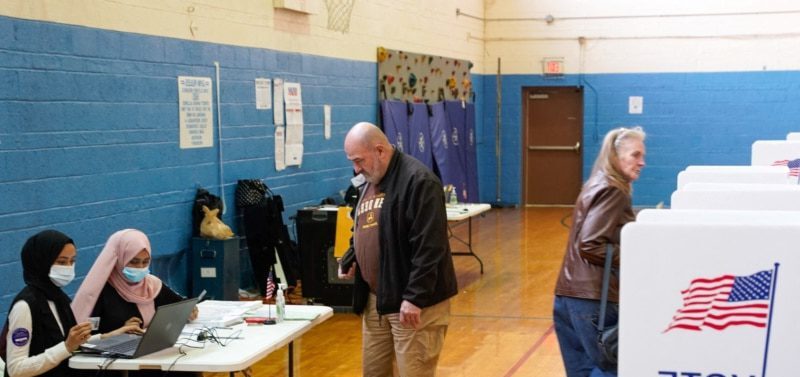BTN News: Foreign influence is ramping up as the 2024 US elections approach, with Russia, Iran, and China intensifying their efforts to sway American voters. According to recent US intelligence reports, these nations are employing increasingly sophisticated tactics to shape the outcome of the presidential race, as well as various down-ballot contests across the United States. While Russia remains the primary threat, leveraging media networks and online influencers to support the Republican candidate, former President Donald Trump, Iran and China are also deploying their own strategies to impact voter opinions and sow discord. As tensions rise, the US government is on high alert, preparing to counteract these interference campaigns.
Russia Leads the Charge in Election Interference
Russia continues to be the most significant threat to the integrity of the US electoral process. Leveraging its state-backed media outlet, RT, the Kremlin is orchestrating a complex network of American and Western influencers to promote narratives favorable to Russia. These efforts primarily aim to boost the chances of Republican candidate Donald Trump while undermining Democratic candidate Kamala Harris.
“Moscow’s Influence Network Expands”
According to a senior US intelligence official, Russian operations have grown more sophisticated, using American voices to amplify pro-Russian viewpoints instead of relying solely on bots or trolls. This tactic seeks to blur the lines between genuine public discourse and Kremlin propaganda. The intelligence community has warned that these influence efforts are not limited to the presidential race but extend to local elections in key battleground states.
How Russia’s Influence Operations Work
RT, a prominent tool in Moscow’s arsenal, has been accused of creating and disseminating content under the guise of free speech. The network has allegedly used fake personas and shell companies to funnel millions of dollars to media entities in the US, such as Tenet Media in Tennessee, which produces political content aimed at conservative audiences.
“Covert Networks and False Fronts”
On top of these efforts, the Department of Justice recently seized 32 domains linked to Russian influence campaigns. These domains were designed to mimic legitimate US news sites, spreading Russian-created propaganda to unsuspecting readers. RT and its collaborators have dismissed these accusations, insisting they were unaware of any links to the Kremlin.
Iran and China Increase Election Interference Efforts
While Russia remains the primary actor in election interference, Iran and China are not far behind. US intelligence agencies report that both countries are intensifying their campaigns to influence the upcoming elections.
“Iranian Tactics Target Trust in Democracy”
Iran is focusing on amplifying internal divisions within the United States, using tactics similar to those seen in previous election cycles. The Iranian campaign primarily aims to undermine confidence in the democratic system and target candidates perceived as unfriendly to Tehran. For instance, Iran has reportedly attempted cyber-attacks on both the Trump and Harris campaigns.
“China’s Calculated Approach to US Elections”
China, meanwhile, appears to be taking a more measured stance, choosing not to directly favor one presidential candidate over another. However, Beijing is reportedly targeting down-ballot races, attempting to influence candidates that it considers a threat to its strategic interests. Chinese online actors are also active in discussions around divisive topics, such as the Israel-Gaza conflict, aiming to stir controversy among US voters.
US Response: A Heightened State of Vigilance
The United States is not taking these threats lightly. National Security Council spokesman John Kirby emphasized the seriousness of the situation, warning that Russia, in particular, is determined to sow discord through disinformation and propaganda. “We are prepared to respond robustly to any attempt to interfere in our democratic processes,” he said.
“A Multinational Threat Landscape”
While Russia, Iran, and China are identified as the primary culprits, they are not alone. Smaller actors like Cuba are also engaging in influence operations, albeit on a smaller scale. Meanwhile, other nations are pushing the boundaries of acceptable political influence, attempting to curry favor with potential US officials.
Conclusion: Vigilance Required Amid Intensifying Foreign Interference
With only weeks left until the election, US intelligence agencies are on high alert, closely monitoring the activities of Russia, Iran, and China. The stakes are high, and the need for vigilance is paramount. As the campaigns heat up, both American voters and officials must be aware of the ongoing efforts by foreign entities to sway the democratic process and prepare to counter these sophisticated and varied threats.


